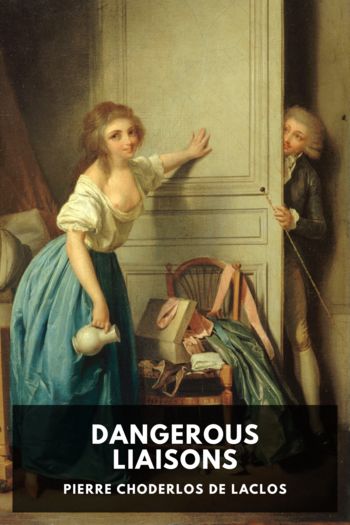The Disappearance of Stephanie Mailer: A gripping new thriller with a killer twist, Joël Dicker [general ebook reader .txt] 📗

- Author: Joël Dicker
Book online «The Disappearance of Stephanie Mailer: A gripping new thriller with a killer twist, Joël Dicker [general ebook reader .txt] 📗». Author Joël Dicker
“What I can’t figure out,” Derek said, “is why, in 1994, Tennenbaum never told us he was under pressure from this Fold when we questioned him about the bank transfers.”
“Fear of reprisals?” Betsy said.
Derek looked dubious. “Maybe. But if we missed this business with Fold, we may have missed something else. I’d also like to take another look at the context of the case and see what the local papers were saying about it at the time.”
“I can ask Bird to let us see all he has on the murders in the archives.”
“Good idea,” Derek said.
When evening came, we stayed for dinner. As they did every Sunday, Derek and Darla ordered pizzas. When we were sitting in the kitchen, Betsy noticed a photograph pinned to the wall. It showed Darla, Derek, Natasha, and me, standing outside Little Russiawhile it wasunder construction.
“What’s Little Russia?” Betsy said innocently.
“The restaurant I never opened,” Darla said.
“You wanted to be a professional chef?”
“There was a time when it was my whole life.”
“And who’s the girl with you, Jesse?” Betsy asked me, pointing to Natasha.
“Natasha,” I said.
“Natasha, your fiancée at the time?”
“Yes.”
“You never told me what happened between you.”
Shaking her head, Darla said:
“My God, Jesse, haven’t you told her?”
* * *
After the press conference on Friday, Bergdorf had booked himself into a hotel just off Main Street. He had considered taking a room in the Lake Palace, but with a sigh he had decided that the New York Literary Review’s expense account could not stretch that far. On Saturday, he had followed Kirk Hayward from a distance as he pasted up posters for his auditions around town. On Sunday, on his way back to his hotel, he bumped into Ostrovski.
“Bergdorf!” the critic said, unable to hide his dismay. “What are you doing here? I leave the city to get a bit of peace and quiet, and who do I run into?”
“I came to find out more about this mysterious play that’s going to be performed.”
“I was here first, Steven, so why don’t you just go back to New York?”
“Look, Meta.” Bergdorf said. “I’ve been meaning to write to you to tell you again just how sorry I am for what happened. The fact is that the Review has been really struggling and you were on the highest wage.”
Ostrovski had the impression that Bergdorf was sincere and he was moved by his apology. “Thank you, Steven,” he said.
“I really mean it, Meta. Is it the New York Times that sent you here?”
“Far from it. I’m unemployed. Who would want to hire an obsolete critic?”
“You’re a great critic, Meta. Any newspaper would hire you.”
Ostrovski sighed. “Maybe that’s the problem.”
“What do you mean?”
“Since yesterday, I’ve been obsessed with one idea: I’d like to audi-tion for ‘The Darkest Night’.”
“Why don’t you?”
“It’s out of the question. I’m a critic of literature and drama. That means I can’t write books and I can’t act in plays.”
“Meta, I’m not sure I follow you.”
“Come on, Steven, make a little effort, for heaven’s sake! Explain to me by what miracle a theater critic could act in a play? Can you imagine if literary critics started writing books or writers became literary critics? Can you imagine Don DeLillo reviewing David Mamet’s new play for the New Yorker? Can you imagine Jackson Pollock having reviewed the latest exhibition by Mark Rothko in the Times? Could you see Jeff Koons tearing Damien Hirst’s new offering to shreds in the Washington Post? Could you imagine Spielberg reviewing the latest Coppola in the L.A. Times,saying, ‘Don’t go to see this shit, it’s terrible’? Everyone would cry foul and accuse them of bias, and with good reason. You can’t criticize an art you practice.”
“Technically, Meta, you’re not a critic anymore,” Bergdorf said.
Ostrovski’s face lit up: Bergdorf was right. The former critic went straight back to his room. Once there, he laid out the copies of the Chronicle with reports of the disappearance of Stephanie Mailer.
What if it was written somewhere that I had to go over to the other side? Ostrovski thought. And what if Bergdorf had actually given him back his freedom? What if, in all this time, he had been a creative artist without realizing it?
He cut out the articles and spread them on the bed. On the night table, the photograph of Meghan Padalin was watching.
* * *
After dinner, at Derek and Darla’s
Night had fallen. Betsy and Derek cleared the table. Darla was outside, smoking by the pool. I joined her there. It was still very warm. The crickets were singing.
“Look at me, Jesse,” Darla said in a sarcastic tone. “I wanted to open a restaurant and here I am ordering pizzas every Sunday.”
I felt her dismay and tried to comfort her. “Pizza is a tradition.”
“No, Jesse, it isn’t. And you know it. I’m tired. Tired of this life, tired of a job I hate. Every time I pass a restaurant, you know what I say to myself? ‘That could have been mine.’ Instead of which, I work myself to the bone as a medical assistant. Derek hates his job, too. He’s hated it for twenty years. And in the last week, since he got back together with you and went back out into the field, he’s been happy as a lark.”
“His place is out in the field, Darla. Derek is an incredible policeman.”
“He can’t be out in the field, Jesse. Not after what happened.”
“Then let him quit. Let him do something else. He’s entitled to his pension.”
“The house isn’t paid off.”
“Then sell it! In two years’ time, your kids will have gone off to college anyway. Go find yourselves a quiet spot, far away from it all.”
“And do what?” Darla said in a desperate tone.
“Live,” I said.
She stared into the distance. I could only see her face by the light from the pool.
“Come,” I said. “I’d like to show you something.”
“What?”
“The project I’m working on.”
“What project?”
“The project I’m quitting the police for. I didn’t want to tell





Comments (0)